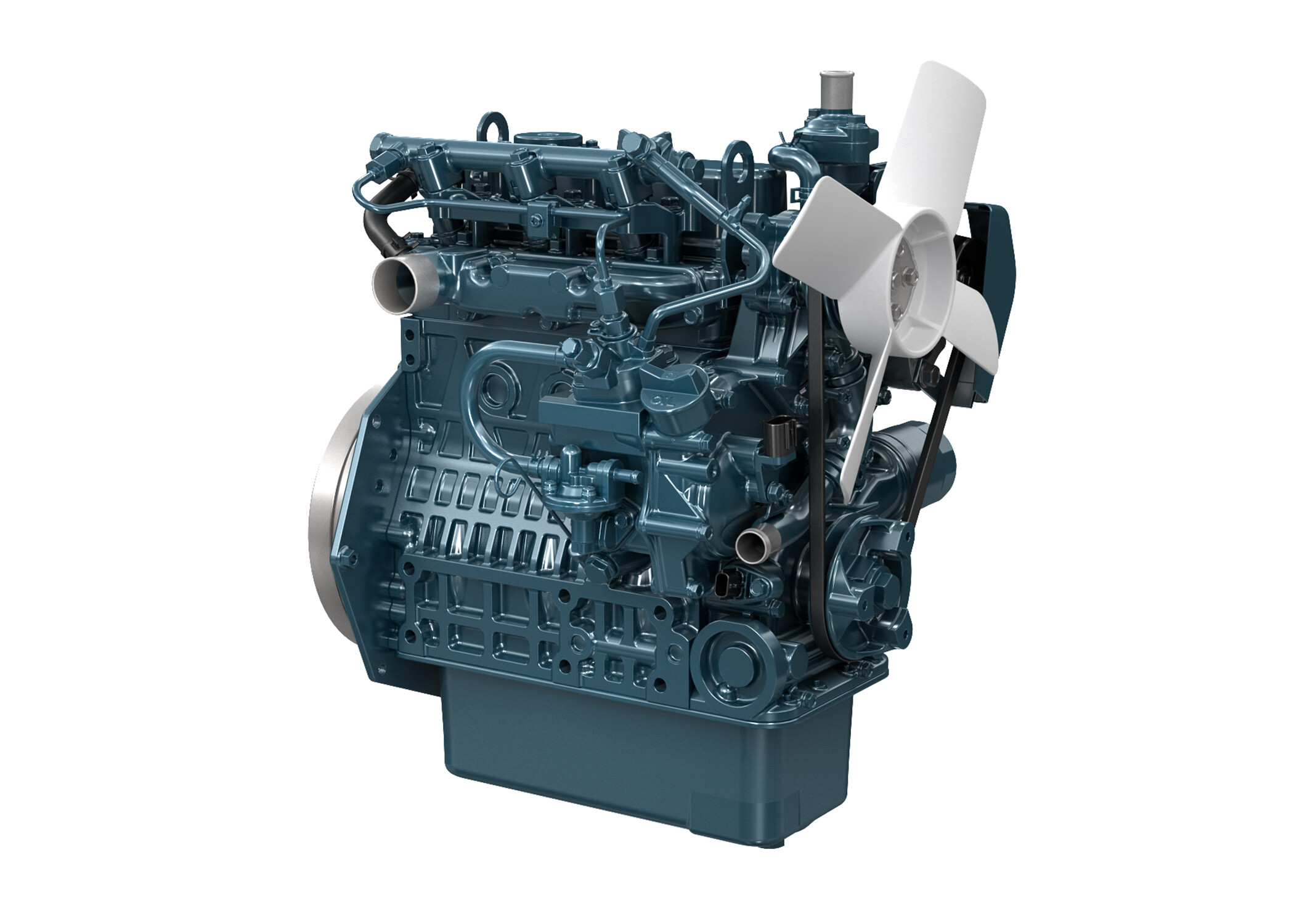by Kyle Molyneux | Thu 08 Apr 2021
Kubota's electrically-controlled diesel engine
Kubota Business Unit Engine Europe (BUEE), the European arm of the Japanese-headquartered corporation, is developing a new electronic controlled diesel engine with an output of 18.5kW. The new Kubota 3-cylinder D902-K (displacement 0.898L), which is set for mass production from 2022, is the first electronic CAN (Controller Area Network) controlled engine that the manufacturer has developed for output less than 19kW.
Designed and developed to meet the latest exhaust emission regulations (EU Stage 5, EPA Tier4 and China NR 4, and China’s Class III visible smoke regulation GB36886-2018) scheduled to come into force in December 2022. The new D902-K diesel engine features a newly designed TVCR combustion chamber combined with a new and unique common rail system within its compact size, making it the ideal replacement for conventional mechanical controlled models.
This system enhances the engine performance efficiency whilst reducing fuel consumptions of approximately 5% compared to conventional control model, meaning that black smoke emission is reduced and suppressed to an invisible level, even during start-up, acceleration and sudden load.
The D902-K’s compact dimensions make it compatible with conventional models; the intake and exhaust position, engine mount mounting position and PTO are the same as a conventional powerplant. Another key feature of Kubota’s D902-K diesel engine is its ability to help improve drivability and work efficiency. Through the acquisition of engine operation data, telematics technology and communicating via CAN (Controller Area Network) by electric control, both the rotation and torque of the engine can be enhanced or suppressed to improve performance and efficiency that cannot be achieved by mechanical control.
Got a news story? Email news@earthmoversmagazine.co.uk.
